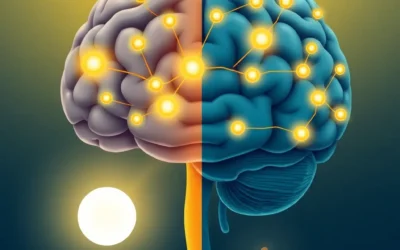Moreover, individuals who have been using marijuana to cope with underlying mental health issues like depression or anxiety may find that these conditions worsen during withdrawal. The rebound of anxiety or depression after quitting marijuana can increase the risk of relapse for some individuals. It is essential for those experiencing severe withdrawal symptoms or struggling with mental health issues to seek support from healthcare professionals or addiction treatment programs.
While marijuana withdrawal symptoms are not typically life-threatening, they can be unpleasant and challenging to manage. Making healthy lifestyle changes, seeking mental health guidance and support, attending support groups, and considering rehabilitation centers or programs can help individuals navigate the withdrawal process effectively. It is crucial for those considering quitting marijuana to consult with healthcare providers for personalized guidance and support throughout their journey towards sobriety.
To learn about the effects of marijuana and the brain, watch this video:
What are the Physical Symptoms of Marijuana Withdrawal?
When quitting marijuana, individuals may experience various physical symptoms as part of the withdrawal process. These symptoms can include:
- Tremors
- Sweating
- Headaches
- Nausea
- Vomiting
- Abdominal pain
- Insomnia
- Decreased appetite or weight loss
- Restlessness
These physical symptoms typically manifest within the first few days after quitting marijuana and may persist for up to 30 days. The severity of these symptoms can vary depending on factors such as the frequency and duration of marijuana use.
What are the Mental Symptoms of Marijuana Withdrawal?
When experiencing marijuana withdrawal, individuals may encounter various mental symptoms as their body adjusts to the absence of the drug. These mental symptoms can include:
- Anger, irritability, and aggression
- Feelings of nervousness and anxiety
- Restlessness
- Depression
- Experiencing strange or unsettling dreams
These symptoms may arise within one week of reduced marijuana use and can persist for up to 30-45 days after stopping marijuana consumption. The severity and duration of these mental symptoms can vary based on factors such as the frequency and intensity of marijuana use.
What are some Alternative Therapies for Marijuana Withdrawal Symptoms?
Some alternative therapies and strategies for managing the mental symptoms of marijuana withdrawal include:
1. Cognitive Behavioral Therapy (CBT): CBT can help individuals identify and change negative thought patterns and behaviors associated with marijuana use, aiding in managing anxiety, depression, and irritability during withdrawal.
2. Mindfulness and Meditation: Practicing mindfulness techniques and meditation can promote relaxation, reduce stress, and enhance emotional regulation, which may help individuals cope with withdrawal-related mood disturbances.
3. Exercise and Physical Activity: Engaging in regular physical activity can boost mood, reduce anxiety, and improve overall mental well-being during the withdrawal process.
4. Support Groups: Joining support groups or attending counseling sessions can provide individuals with a sense of community, understanding, and encouragement as they navigate the challenges of marijuana withdrawal[3].
5. Healthy Distractions: Engaging in hobbies, activities, or interests that bring joy and distraction can help individuals manage cravings and focus on positive outlets during withdrawal.
These alternative therapies can complement traditional treatments and support individuals in addressing the mental symptoms associated with marijuana withdrawal effectively.
How Can CBT Help People Quit Marijuana?
Cognitive Behavioral Therapy (CBT) can be an effective tool in helping individuals quit marijuana by teaching them skills relevant to quitting and managing other problems that may arise during withdrawal. Here are some ways CBT can assist in quitting marijuana:
1. Functional Analysis: CBT helps individuals understand the function of their marijuana use, identify triggers for use, and develop strategies to avoid or cope with these triggers effectively.
2. Self-Management Planning: Through CBT, individuals learn to create self-management plans to avoid or cope with situations that may lead to drug use. This includes developing drug refusal skills, problem-solving skills, and lifestyle management strategies.
3. Coping Skills Training: CBT equips individuals with techniques for managing urges and cravings, recognizing triggers for drug use, managing withdrawal symptoms, and learning relapse prevention strategies. These skills are crucial in navigating the challenges of quitting marijuana.
4. General Coping Skills: CBT introduces general coping skills such as stress management techniques, assertiveness training, communication skills development, and relaxation strategies. These skills help individuals manage negative affect and stress effectively during the withdrawal process.
By incorporating these elements of CBT into treatment plans, individuals can develop the necessary tools and strategies to overcome marijuana dependence and successfully navigate the challenges of withdrawal.
Where Is Society Going with The Top 15 Growth Performers of 2024?
As...
Everything to Know Before Buying an Oura Ring
The...
Top Audiobook Recommendations of Elon Musk.
Elon...
Career Opportunities for People with Mild Autism: A Comprehensive Guide
Autis...
How to Learn Better: A Review of “The Science of Rapid Skill Acquisition”
Learn...
How the Oura Ring Revolutionizes Sleep Tracking Compared to Other Fitness Trackers
In...
Summary of RTM Protocol in Erasing PTSD in under Five Hours
Havin...
Review of Reconsolidation Behavioral Updating of Human Emotional Memory
Compr...
A 15-Minute Hypnosis Script for Adults with Mild Autism: Cultivating Calm and Connection
Many...
How Does CREB Differ Between Memory Reconsolidation and Memory Extinction?
The...























